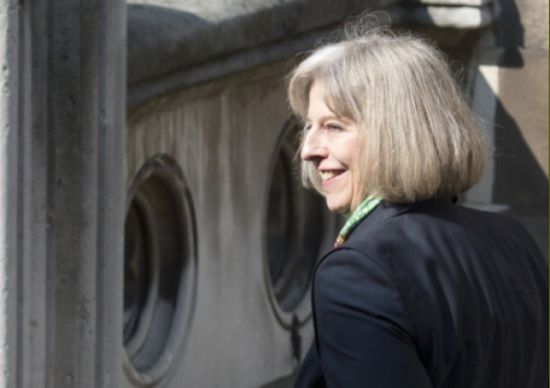 |
|
Home Secretary Theresa May
arrives to give evidence at the Leveson
Inquiry. Picture: AFP/Getty |
THERESA May yesterday denied claims that News International
pressured her into launching a fresh inquiry into the
disappearance of Madeleine McCann.
The Home Secretary rebuffed suggestions made at the Leveson Inquiry
that she was told they would “put her face on the front
page every day” until she gave in to their demands for a
new investigation.
She insisted phone calls discussing the plans for the Scotland Yard
review with former News International chief executive
Rebekah Brooks and Sun editor Dominic Mohan were at “her
instigation”.
Mrs May said that preparations for the new investigation had begun
under the previous government and the work was simply
coming to fruition when the announcement was made.
She told the inquiry: “Neither Mrs Brooks nor Mr Mohan made any
indication of that sort to me.
“The nature of these conversations was to alert them to the fact
that the government was taking some action, there was
going to be some further work by police here in the UK
and to put forward the point that it was very important
that the UK authorities were able to work with the
Portuguese authorities.”
The inquiry heard that the Home Office’s work was “coming to
fruition around this time and obviously the issue was of
public interest”.
“The Home Office first started discussing with Acpo [the
Association of Chief Police Officers] the possibility of
a police review or further police work on this under the
previous government,” she said.
The Home Secretary said David Cameron was “interested in this
specific issue”, but said she could not recall “having a
specific discussion myself” with the Prime Minister
about whether the Met should carry out its own review.
Mrs Brooks denied bullying the government over the issue when she
appeared before the inquiry earlier this month.
Mrs May, one of the Cabinet ministers to whom Lord Justice
Leveson’s report will go directly, declined to be drawn
on what specific rules should be brought in to regulate
the press.
But she told the inquiry she strongly believed in the freedom of
the press and warned against any measures that would
compromise that.
She also cautioned against possible plans to allow groups of people
to make joint complaints against newspapers.
Earlier, Lord Leveson indicated he might act on the problem, after
he told the inquiry he had received representations from
transgender, disabled and immigrant groups complaining
they were unable to take issue with coverage unless they
were specifically named in an article. “It would be
necessary to be very careful that it didn’t generate an
industry of group complaints,” Mrs May warned.
She also told the inquiry new guidelines that would bring “common
sense” to relationships between the police and media
have been drawn up.
Acpo guidance recommends officers should not accept gifts,
gratuities or hospitality “except if it is of a trivial
nature”.
Mrs May said it was important that officers did not put themselves
in a position where “people could feel that they are
being influenced by the receipt of such gifts”. |


